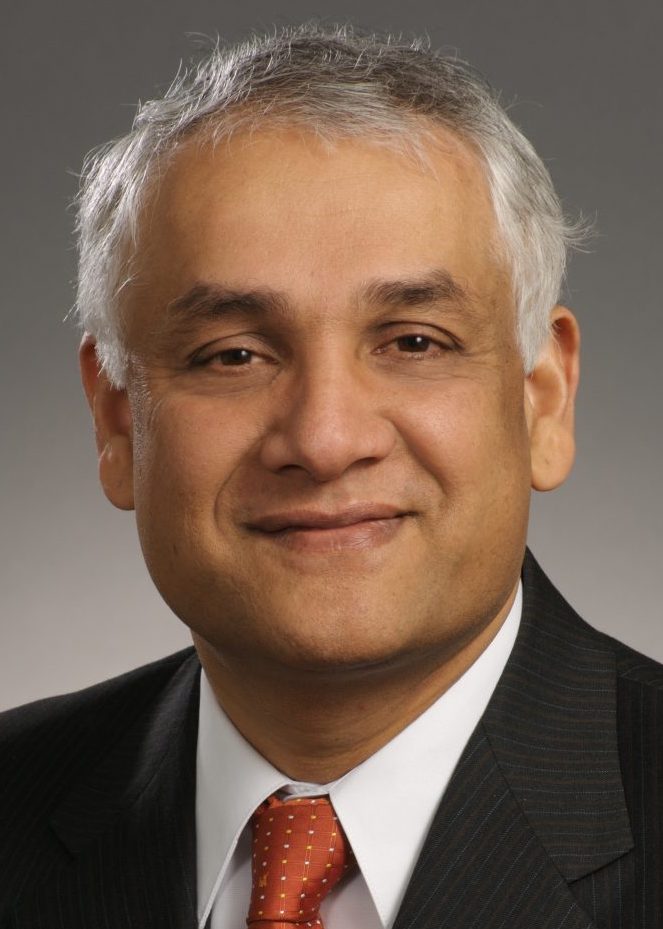Spring ’18 Joint CSC@USC/CommNetS-MHI Seminar Series
 |
Pramod Khargonekar,
University of California, Irvine
|
Abstract
The main goal of this presentation is to showcase the major challenges in integrating large amounts of solar and wind electric energy in power systems. I will begin with an overview of the key drivers for increased use of solar and wind electricity production: carbon emissions reduction for climate change mitigation, falling prices of wind and solar generation, and socio-economic policies and preferences. This will be followed by a description of the major obstacles and challenges in power systems operations and controls in using large amounts of wind and solar electricity while achieving reliability at low cost. I will next highlight some of the possible avenues to overcoming these obstacles where control systems technologies hold significant potential: harnessing demand side flexibility, energy storage and electric vehicles, and economic market operations. I will present some of our recent results along these directions. The talk will conclude with some thoughts on the evolutionary nature of electric energy system development and technological change, resilience of infrastructures and prospects for the future.
Biosketch
Pramod Khargonekar received B. Tech. Degree in electrical engineering in 1977 from the Indian Institute of Technology, Bombay, India, and M.S. degree in mathematics in 1980 and Ph.D. degree in electrical engineering in 1981 from the University of Florida, respectively. He has been on faculty at the University of Florida, University of Minnesota, The University of Michigan, and the University of California, Irvine. He was Chairman of the Department of Electrical Engineering and Computer Science from 1997 to 2001 and also held the position of Claude E. Shannon Professor of Engineering Science at The University of Michigan. From 2001 to 2009, he was Dean of the College of Engineering and Eckis Professor of Electrical and Computer Engineering at the University of Florida till 2016. He also served briefly as Deputy Director of Technology at ARPA-E, US Department of Energy in 2012-13. He was appointed by the National Science Foundation (NSF) to serve as Assistant Director for the Directorate of Engineering (ENG) in March 2013, a position he held till June 2016. In this position, Khargonekar led the ENG Directorate with an annual budget of more than $950 million. In addition, he served as a member of the NSF senior leadership and management team and participated in setting priorities and policies. In June 2016, he assumed his current position as Vice Chancellor for Research and Distinguished Professor of Electrical Engineering and Computer Science at the University of California, Irvine.
Khargonekar's research and teaching interests are centered on theory and applications of systems and control. His early work was on mathematical control theory, specifically focusing on robust control analysis and design. During the 1990’s, he was involved in a major multidisciplinary project on applications of control and estimation techniques to semiconductor manufacturing. His current research and teaching interests include systems and control theory, machine learning, and applications to smart electric grid and neural engineering. He has been recognized as a Web of Science Highly Cited Researcher. He is a recipient of the NSF Presidential Young Investigator Award, the American Automatic Control Council’s Donald Eckman Award, the Japan Society for Promotion of Science fellowships, the IEEE W. R. G. Baker Prize Award, the IEEE CSS George Axelby Best Paper Award, the Hugo Schuck ACC Best Paper Award, and the Distinguished Alumnus and Distinguished Service Awards from the Indian Institute of Technology, Bombay. He is a Fellow of IEEE and IFAC. At the University of Michigan, he received the Arthur F. Thurnau Professorship. In the past, he has served as Associate Editor for IEEE Transactions on Automatic Control, SIAM Journal of Control, Systems and Control Letters, and International J. of Robust and Nonlinear Control. He has been a member of the IEEE Control Systems Theory and Robust Control technical committee. He has also served as Chair and Member of the American Automatic Control Council’s Donald Eckman Award Committee. He has served as Program Co-Chair of the American Control Conference. Recently, he was a member of the IEEE Smart Grid 2030 Vision committee.
